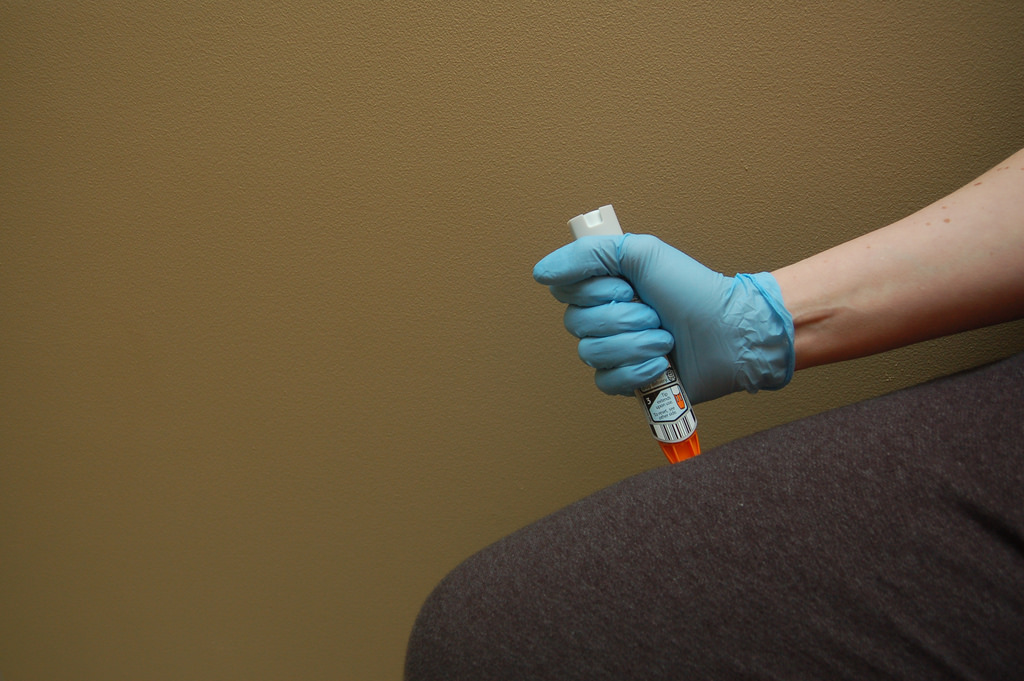Bad News for the EpiPen Maker

By:
EpiPen manufacturer Mylan recently received a lot of negative attention due to the device's significant price hike over the past eight years. Now, Mylan has also drawn the ire of lawmakers for reportedly overcharging the government for the medical device.
 Flickr/Grfriese - flickr.com
Flickr/Grfriese - flickr.com
"After rebates, net Medicaid spending over this five-year period was approximately $797 million, reflecting a rebate of 13 percent," the Centers for Medicare and Medicaid Services (CMS) said in a letter sent to lawmakers on Wednesday.
Mylan paid Medicaid only a 13 percent rebate on EpiPen sales because Mylan has been labeling EpiPen as a generic device. However, it should have been paying a 23.1 percent rebate because the EpiPen has been wrongly classified as generic since the fourth quarter of 1997, CNBC reported.
Business Insider also reports that "[t]he reason why misclassification is a big deal is because brand-name drugs have inflation protections with Medicaid that generics don't."
 Wikimedia Commons - wikimedia.org
Wikimedia Commons - wikimedia.org
The letter from CMS to Senator Ron Wyden (D-Ore.) explains:
"A review of our records indicates that, prior to 1997, EpiPen was reported as a single source, or brand drug, for the Medicaid Drug Rebate Program. Since the fourth quarter of 1997, EpiPen has been reported as a non-innovator multiple source, or generic drug. EpiPen is approved under a New Drug Application (NDA) by the Food and Drug Administration (FDA), has patent protection, and has no FDA-approved therapeutic equivalents.
"These facts indicate EpiPen does not meet the definition of a multiple source drug, but, in fact, meets the definition of a single source drug or brand drug. The Center for Medicaid and CHIP Services in CMS has, on multiple occasions, provided guidance to the industry and Mylan on the proper classification of drugs and has expressly told Mylan that the product is incorrectly classified."
Wyden was one of several senators on the Senate Finance Committee to sign a letter the Inspector General of the U.S. Department of Health and Human Services in September, asking for more information about EpiPen and Medicaid.
The CMS argues that it has repeatedly "provided guidance to the industry and Mylan on the proper classification of drugs and has expressly told Mylan that the [EpiPen] is incorrectly classified."
"This incorrect classification has financial consequences for the amount that federal and state governments spend because it reduces the amount of quarterly rebates Mylan owes for EpiPen," the letter continues.
 Wikimedia Commons - wikimedia.org
Wikimedia Commons - wikimedia.org
Sen. Wyden and Rep. Frank Pallone (D-N.J.) responded to the CMS findings in a joint statement:
"Today’s letter is more evidence that while Mylan irresponsibly raised the price of EpiPen, they were also bilking taxpayers out of millions of dollars. Essential medicines like EpiPen are increasingly out of reach for families across the nation due to unjustified price hikes, and it’s high time for drug companies to take responsibility for their actions. We will ensure taxpayers get their due."
Mylan provided ATTN: with a full statement via email in response to the CMS letter:
“Any changes made to the rebate classification in 1997 pre-dated Mylan’s acquisition of the product by almost a decade. Mylan simply continued to classify the product the same way it had been classified before Mylan acquired the product. The longstanding written guidance provided by the federal government is consistent with how the product was classified dates back to the 1997 time frame.”
"Mylan has previously stated that the EpiPen Auto-Injector meets the definition of 'non-innovator' drug in the Medicaid rebate law," Mylan wrote in an email to ATTN:. "EpiPen Auto-Injector has been classified as a non-innovator since long before Mylan acquired the product. Mylan’s classification of EpiPen Auto-Injector as a non-innovator drug is consistent with longstanding written guidance from the federal government. Just this year, the government adopted a new rule intended to clarify ambiguities in the Medicaid rebate law. The rule establishes a new process for pharmaceutical companies to follow if they have products, like EpiPen®, approved under a what the FDA calls a 'new drug application' that they believe should continue to be treated as a non-innovator drug. The new process calls for the submission of an application for non-innovator status to be submitted to CMS on or before April 1, 2017. It would be premature to comment further on this issue until the CMS process has concluded."
EpiPen costs have seen a roughly 400 percent hike since 2008, when they cost around $100. Now, EpiPen costs can exceed $600. Because Mylan has almost no competition for EpiPen devices, many people have expressed concern over the exorbitant increases:
When probed about the gradual EpiPen price hikes during the summer, Mylan told CBS News that the price "changed over time to better reflect important product features and the value the product provides."
"We've made a significant investment to support the device over the past years," the company argued.
Senator Richard Blumenthal (D-Conn.), however, wrote in a letter at the time that he was not convinced that the product had seen a significant improvement overtime:
“I was both shocked and dismayed to discover that the price of your product, which has not been improved upon in any obvious or significant way, has skyrocketed by 480% since 2009. My office has been contacted by dozens of concerned Connecticut residents, families, school nurses, and first responders who urgently require your life-saving product but fear that its skyrocketing price has put it out of reach. Due to Mylan’s virtual monopoly of the epinephrine auto-injector market and its unique life-saving attribute, it is crucial that your product remains affordable for all Americans. Therefore, I demand that Mylan take immediate action to lower the price of EpiPen’s for all Americans that rely on this product for their health and safety.”
Update 10/5/2016 7:38 PST: This article has been updated to include email statements from Mylan.
[H/T Business Insider]
